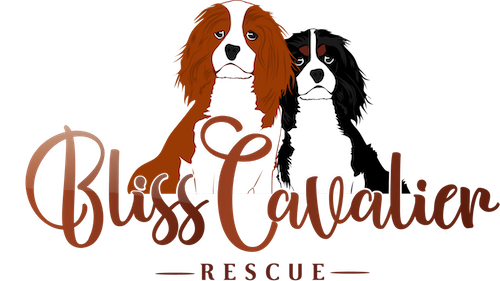Chronic pancreatitis in Cavalier King Charles Spaniels

Rupert’s recovery since his protein losing enteropathy (PLE) crisis
13 December 2022
Free and low cost veterinary care support for owners
30 December 2022Cavalier King Charles spaniels are known to be predisposed to chronic pancreatitis. This means they are more likely to develop the condition compared to other breeds. The exact reason for this increased susceptibility is not fully understood, but it is thought to be due to possible genetic factors.
Pancreatitis is a condition in which the pancreas, a digestive gland located behind the stomach, becomes inflamed.
As a Cavalier owner, it is important to be aware of the condition due to its prevalence in the breed, as it can become very serious. In dogs, pancreatitis can be acute, meaning it comes on suddenly and may only last a short time, or it can be chronic, meaning it develops over time and can persist for months or even years.
What does the pancreas do?
The pancreas plays a key role in the digestive system. In dogs, as in humans, the pancreas has two main functions: endocrine and exocrine. The endocrine function of the pancreas involves the production of hormones, such as insulin, which help regulate the body’s metabolism. The exocrine function of the pancreas involves the production of enzymes necessary for food digestion. These enzymes are released into the small intestine, where they help to break down carbohydrates, proteins, and fats. The pancreas is an important organ for maintaining overall health, and problems with the pancreas can lead to a range of digestive and metabolic disorders.
What are the symptoms of pancreatitis in dogs?
The symptoms of chronic pancreatitis can vary depending on the severity of the condition and the underlying cause. Some common symptoms of chronic pancreatitis in dogs include:
- Vomiting
- Abdominal pain
- Loss of appetite
- Weight loss
- Lethargy
- Diarrhoea
- Dehydration
- Changes in appetite, such as a preference for fatty foods
If a dog is showing any of these symptoms, it is important to take them to a veterinarian as soon as possible for diagnosis and treatment. Chronic pancreatitis can be a serious condition; if left untreated, it can lead to complications such as malnutrition and organ damage. The symptoms of chronic pancreatitis can come and go in flares.
Treatment for pancreatitis
Treatment usually consists of:
- Low-fat veterinary diet or homemade low-fat diet with the help of a veterinary nutritionist. Fatty food must be avoided completely (including treats) to avoid a painful flare.
- Pain relief must be prescribed, pancreatitis is an extremely painful condition.
- IV fluids for more severe cases when unable to eat or drink enough.
- Some may be prescribed antibiotics and anti-sickness medication.
Acute pancreatitis
Acute pancreatitis is a short-term condition in which the pancreas becomes inflamed suddenly and severely. This can be a serious and potentially life-threatening condition. Dogs may show a range of symptoms, including vomiting, abdominal pain, loss of appetite, and lethargy. In severe cases, dogs may also develop fever, shock, and difficulty breathing. Treatment for acute pancreatitis typically involves hospitalisation and supportive care, such as intravenous fluids and pain medication.
What is exocrine pancreatic insufficiency?
Exocrine pancreatic insufficiency (EPI) is a condition in which the pancreas, a digestive gland located behind the stomach, does not produce enough enzymes necessary for food digestion. This can lead to a range of digestive symptoms, including weight loss, diarrhoea, and bloating.
EPI treatment usually involves using enzymes added to the dog’s food and a low-fat diet.
More information on pancreatitis in Cavaliers, including research information, can be found here- https://cavalierhealth.org/pancreatitis.htm




